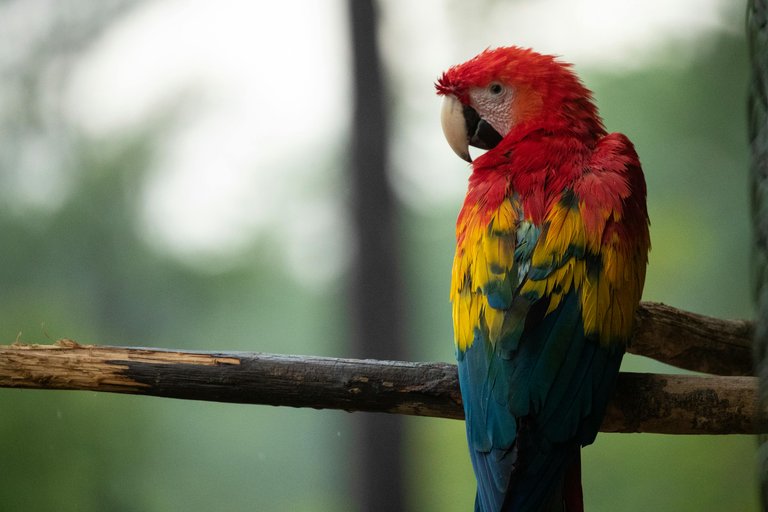"Wanting Safety"
When I was going for a walk yesterday, I saw a caged parrot that was trying to escape its cage through peeling off the wooden floor (and sides) with its beak.
The scene itself was a bit worrying for me because I tried to transpose myself into the parrot's point of view and couldn't imagine anything worse.
Even from a theoretical perspective, being in a cage can be very, very suffocating.
Restrictive movements turn into restrictive thoughts, and you're on this razor's edge of battling with insanity that's teetering between hope and madness.
I think it might take a decade before it can escape from its cage given the thickness of the wood and the pace at which the parrot was working at.
But observing this bird get to work on trying to free itself made something click for me about an aspect of freedom and the price we pay for safety.
The Safety Trap
We love our safe choices, and it's the path that everyone else says is "smart."
For example, choose the stable job over the entrepreneurial leap or a comfortably uncomfortable silence over having a risky conversation.
The only way to realize these are inherently bad choices is to recognize that they stem from a deep-seated fear of the unknown.
Watching that parrot at work in that environment gave me an understanding that none of us want safety in the first place, not at least when it comes at the cost of genuine autonomy and self-expression or as a primary desire.
I think "wanting safety" is a manifestation of a subconscious attempt to control an inherently unpredictable world.
There's an expensive cost here attached to comfort and predictability, in that the very structure that keeps us safe turns into a prison that also keeps us stuck.
Arguably, the owner of this bird could say it was a protective measure of sorts to ensure the bird's survival.
With that cage came guaranteed survival.
No predators and storms, regular meals, shelter from the elements. Everything a bird "should" want from conventional wisdom. But somehow the bird still desperately wanted to leave!
I'm not sure if it'll be let out to roam occasionally or in a routine way, having to stay in that place at all times for a long time is a slow erosion of the spirit, nonetheless.
Freedom And Staying Alive
Unlike the parrot, we have the privilege of building our own cages and then convince ourselves we chose them freely.
It's easier to create elaborate justifications for why I can't have that difficult conversation that might change everything over just having it and dealing with the outcome later on, for example.
The parrot doesn't have the luxury of self-deception. It knows exactly what it wants and it acts directly upon that fundamental desire for liberation.
That bird methodically working at its wooden prison also reminded me that the urge for freedom is a universal instinct that transcends species.
I think the work itself on chipping out a path to escape is the most rational thing in the world to do, despite it obviously looked like a foolish and futile relentless effort.
A living being refusing to accept limitations placed upon it by others, even when those limitations came wrapped in care and good intentions.
So many of us have forgotten we have wings at all.
We've grown so accustomed to our constraints that we've mistaken them for reality itself.
An example that I never stop getting reminded of is how many people delay pursuing their true passions until "the right time," which almost never arrives.
Sometimes, the obvious thing we can do is pick up our beaks and start pecking away at whatever cage we've found ourselves in, even if it takes a decade or others think we're foolish for trying.
Because the alternative, which is accepting the cage as permanent, comes with experiencing the slow erosion of the spirit.
Some battles are worth fighting because the act of fighting itself is what keeps the spirit alive.
Thanks for reading!! Share your thoughts below on the comments.
